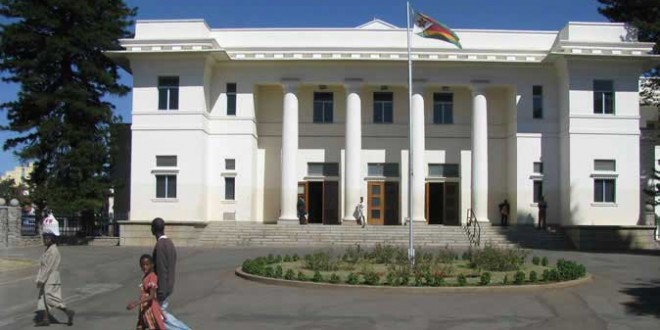
THE Bulawayo City Council has adopted a new debt recovery policy that will see the local authority requesting employers to deduct outstanding debts from salaries of residents.
NQOBANI NDLOVU STAFF REPORTER
According to an 18-paged council credit control and debt collection policy, the objective is to ensure that “all money due and payable to the city in respect of rates, fees for services, charges, tariffs and interest which have accrued on any amounts due and payable in respect of the above and any collection charges are collected efficiently and promptly”.
The council added that the long-term objectives of the policy were to reduce debtors by 4% annually, inculcate a culture of paying for services, minimise risk and proactively manage debts. Council is owed over $80 million in unpaid bills by residents and the government departments since June last year after government directed local authorities to write debts off.
The local authority blames poor service delivery on the failure by residents and government departments to clear their debts.
“The City of Bulawayo may, with the consent of a person liable to the municipality for the payment of rates or other taxes or fees for municipal services, enter into an agreement with that person’s employer to deduct from the salary or wages of the person of any outstanding amounts due by that person to the municipality; or such regular monthly amounts as may be agreed,” the report said.
“The onus to introduce such arrangements remains with each employer/employee. A collection commission may be payable to the employer as determined from time to time. Councillors on assuming office should have nil balances on their accounts and are urged to maintain the accounts up to date. The town clerk shall liaise with the mayor and issue the necessary allowance deduction instruction where appropriate,” reads the new credit control document.
Council employees should also not be in arrears to the municipality for a period over three months or their salaries will be deducted to clear their debts under the policy.
- Chamisa under fire over US$120K donation
- Mavhunga puts DeMbare into Chibuku quarterfinals
- Pension funds bet on Cabora Bassa oilfields
- Councils defy govt fire tender directive
Keep Reading
“Any person receiving a salary or allowances from City of Bulawayo may not be in arrears to the municipality for rates and consumer service charges for a period longer than three months and council may deduct any outstanding amounts from the person’s salary after this period.
“The City of Bulawayo shall liaise with the relevant persons . . . and their departmental representatives and issue the necessary salary deduction instruction where appropriate after compliance with the provisions of the Labour Relations Act,” the policy reads.
A certified statement of a list of a debtor’s assets, payslips and bank statements will now be required for one to enter into any agreement with council over the payment of a debt.
If the agreement is dishonoured, no second agreement will be entered into and water supplies will immediately be disconnected and legal action initiated.
“In order to determine monthly instalments, a comprehensive certified statement of assets and liabilities, payslip or bank statement of the debtor needs to be produced by the debtor. The main aim of an agreement will be to promote full payment of the current account and to address the arrears on a consistent basis.
“No person will be allowed to enter into a second agreement if the first agreement was dishonoured, except in merit cases like pensioners, if the debtor loses his or her job, the company closes or dies,” the report reads.











